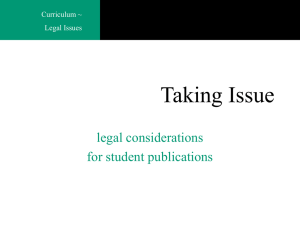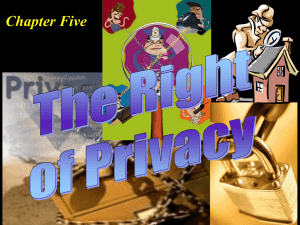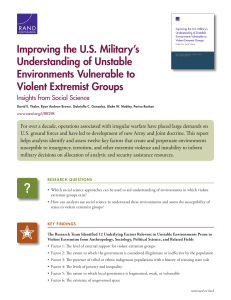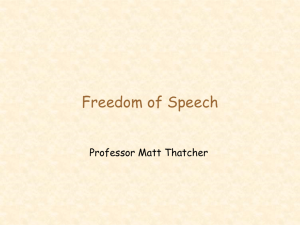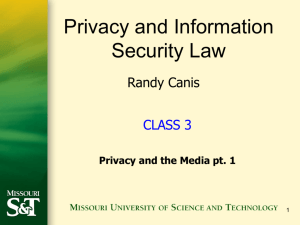Chapter 17
advertisement
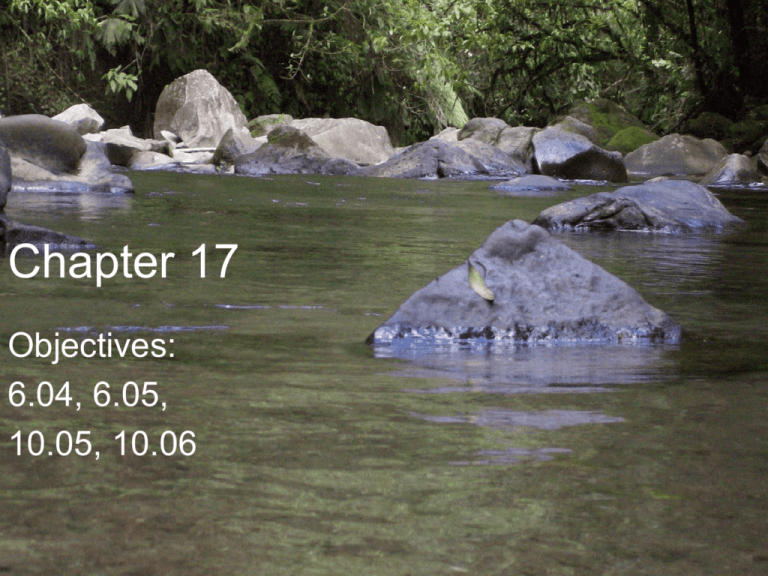
Chapter 17 Objectives: 6.04, 6.05, 10.05, 10.06 Using the Internet • Web sites: pages on the World Wide Web that contain text, images, audio, and video • Over 1 billion users • ¾ of the population has access to the internet Using the Internet • Uses: – For gathering information from online newspapers and magazines • Archives: files of older stories • Most sites are not nonpartisan – E-government: • Different levels of government have their own web sites. • Makes it easy to learn about public policy, request services and participate in government. Using the Internet – For group action • Web sites for interest groups • Newsgroups: Internet discussion forums • During election campaigns – Major (and some minor) parties have their own websites • These may include newsletters and lists of supporters or ideas • May be biased! Using the Internet – Take part in elections through blogging • Blog is short for “web log”; a personal online journal. • Blogs are a popular way to express ideas about things • Bloggers can post false or misleading info – Making “grassroots” websites • Equal to putting signs in your yard • Can also be biased • Official and Unofficial sites look similar. Potential of the Internet • Many assumed Internet would help spread democracy. • Most non-democratic gov’ts are limiting online access. – Many dissident sites – those that disagree with the ‘established political system – are not allowed. • Also, internet empowers intolerant extremist groups who seek to divide society Potential of the Internet • Not all people have access to the internet. – Schools and libraries offer free access though • Extremist Groups: groups with ideas far away from the political center – Internet makes it easier for them to communicate, spread propaganda, and get new recruits. – Terrorist groups – like al-Qaeda – also use the internet. Threats to Privacy • Personal information (address, income, etc.) can be stolen when you make online purchases or go on certain sites. • Legal protection of privacy is limited and hard to enforce. • Children’s Online Privacy Protection Act (1998) – Getting info from children under 13 requires parental permission. Threats to Privacy • Gov’t: – Monitors electronic communication – Online surveillance – NSA and Dept. of Justice – Recently, gov’t requested records from search engines like Yahoo and MSN. – There has been debate about how this may be conflicting with the 4th Amendment. •Protection against unreasonable searches/seizures Free Speech and the Internet • Free speech is a constitutional right, but hate groups and others create offensive material and web sites. – Computer users can block offensive material – Communications Decency Act (1996)• Federal crime to send/display indecent or obscene material over the Internet “in a manner available” to anyone under 18. Free Speech and the Internet – Passed Child Online Protection Act (1998) • Required Web sites to require users of all ages to verify their ages • This was struck down by Ashcroft v. American Civil Liberties Union (2004) • The Supreme Court, however, has ruled that students’ activities on the Web can be regulated – Hazelwood School District v. Kuhlmeier Free Speech and the Internet • Intellectual Property: things that people create (i.e. songs, movies, books, etc.) • Copyright: the owner’s exclusive right to control, publish, and sell an original work – Digital Millennium Copyright Act (1998) – makes it a crime to develop or spread software that will bypass computer codes that protect copyrighted material – Debates over file-sharing Free Speech and the Internet • E-commerce: using the Internet for purchase and sales transactions – Can avoid paying local sales-tax – State/Local gov’ts lose revenue: • The income that a gov’t or business collects – Debate over collecting taxes for online-sales







